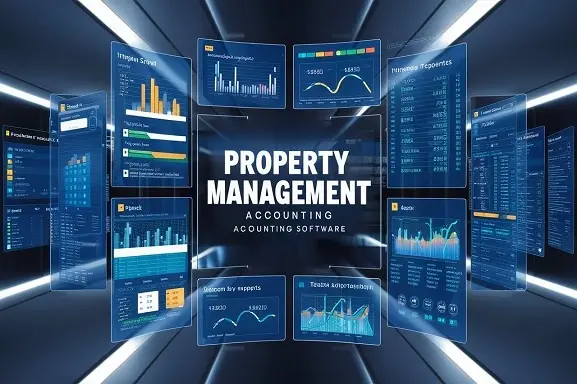Property Management Accounting: A Basic Guide

Property management accounting is a specialty that is significant in managing a property management company or managing rental premises. It is crucial to understand accounting and bookkeeping since it assists property managers in reporting, clarifying legal requirements, and offering insight regarding their properties’ financial outcomes. Hence, this blog post is aimed at giving a basic understanding of some of the accounting principles and some of the best practices that every property management should have.
Accounts to Open and Basic Accounting Procedures
The foundation of management accounting for rental properties lies in setting up proper accounting books to record all relevant transactions: The foundation of management accounting for rental properties lies in setting up proper accounting books to record all relevant transactions:
- It is advisable to maintain a unique accounting book/ software for each property if one is managing several properties. This makes it easier to monitor the performance of each asset, as will be discussed later in the following chapter.
- Some of the use cases are Different categories of income such as rent, security deposits, pet deposits, laundry, etc. You have accounts for all kinds of utilities, maintenance work orders, and taxes for the property as well.
- The expenses including make-ready costs, regular maintenance, turn cleaning fees, property management fees, etc. should be classified.
- Recording of all money should be done systematically at least once a week. The invoices should therefore be documented well and records should be kept as much as possible.
When proper accountancy is done, it becomes easy to record all daily income and expenses incurred in the day. This also prepares financial reports such as the profit or loss statement which yields data on each property.
Property Management Accounting: A Basic Guide
Handling Security Deposits
An important consideration for property accounting is the security deposits collected from tenants – these shouldn’t be confused with fees owed by the tenant to the property manager, but are rather monies held by the manager on behalf of the tenant. Keep an account for liability for security deposit to avoid confusion with the actual cash. Prescribe all security deposits collected and all refund cheques paid to tenants, where relevant. It is mandatory in some regions that security deposits should be kept in separate trust bank accounts and not in the company accounts. It is also important to keep abreast with various laws that are enacted by the local authorities regarding the management of security deposits.
Accepting Rent Payments
Have several easy and convenient rent payment methods such as; online payment, bank payments, and others Develop separate accounts for keeping records of rent-related transactions including penalties for late payment, partial payments, and bounced checks among others Issue proper receipts/ invoices for monthly rent payments. Most of the income is derived from rents, which make up more than 90% of the income from rental property, thus making rent accounting critical.
Paying Vendors and Utilities
Pay bills of vendors and utilities by writing checks, online banking, credit cards or any other convenient method. Document them using proper expense accounts. To cover all the bills from the property, you should ensure that all other bills in the property are paid before the owners/investors release your management fees every month. This is because it minimizes instances whereby you will have used the funds that are exercised for property expenses to pay your management company.
Generating Financial Statements
Organized under a filing system that captures all types of property transactions, preparing monthly/quarterly financial statements is relatively easy. Some of the key reports that are used in preparing accounts include; income statements, balance sheets, trial balances, and statements of cash flows. To evaluate the profitability and cash flow of the property and to identify discrepancies and other factors that will help in achieving better financial control, review these documents.
Handling Taxes
Some of the property tax laws that need to be followed include: providing 1099s to independent contractors, filing 1096 forms annually, filing 1098 reporting for rents collected if managing foreclosed homes, paying quarterly estimates for income taxes, filing W-2 forms for employees, etc. It is very important to adhere to federal, state, and local tax legal requirements to avoid run-ins with the Internal Revenue Service.
Using Accounting Software/Tools
The initial steps of property management accounting do not require complex tools, as simple Excel sheets and Google Sheets are sufficient. However, the sheer size of the properties under management makes it easier to use dedicated accounting software to accomplish the task. Common features such as invoicing, expense tracking, and budgeting are still present with added services for property management accounting, including recurring invoicing and reporting.
Conclusion
This is because all the income and expenses should be accounted for, property transactions should be documented well, and managers should ensure that they record all the transactions with the tax authorities properly besides incorporating the right software programs in accounting. Sustaining sound accounting structures provides managers with the data and information necessary for fully addressing the receipt of rental property revenues and satisfactorily addressing the property investor's needs. Sustained records are crucial in supporting the professional workload done to the owners, auditors, and other authoritative bodies as well. So, the basics of accounting are the key to good reporting and decision-making, risk management, and meeting compliance requirements.
Contact us here for Property Management Accounting services now!
